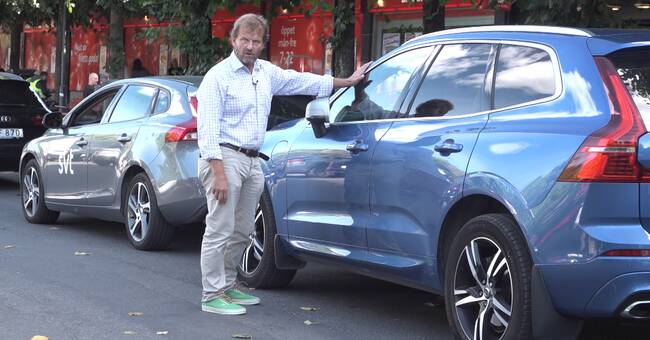In August, a large Volvo SUV became the best-selling climate bonus car for the first time, according to the industry association Bil Sweden's statistics.
It was the plug-in hybrid XC 60, weighing 2.3 tons, that took first place.
This means that family cars from, for example, Volkswagen and KIA, with half as large emissions, have lost market share to the Volvo SUVs - thanks to the government easing the requirements for climate bonuses this year.
Relieved the requirements
When the EU introduced new and more reality-based ways of measuring emissions, it turned out that many cars had higher carbon dioxide emissions than previously stated.
Thus, some hybrids, including the Volvo SUVs, would leave the bonus system.
The bonus ranking is crucial for Volvo's sales in Sweden.
The buyer gets a bonus when buying the car, and lower vehicle tax.
For company car drivers, the benefit value will be reduced.
Many employers now also only accept company cars that have a climate bonus.
The government chose to ease the requirements for bonuses.
The emission limit for the bonus was raised from 60 to 70 grams of carbon dioxide per kilometer, with the justification that otherwise there would be too few car buyers who wanted to buy electric and plug-in hybrid cars.
Report: Very little climate benefit
SVT Nyheter's review shows that out of 48,000 bonus cars sold so far this year, around 1,000 have received a bonus thanks to the increased limit.
Of these, nine out of ten are Volvo cars, the vast majority SUVs.
The change thus benefited in practice almost exclusively Volvo cars.
But many of Volvo's plug-in hybrids are very heavy.
This makes them worse from a climate point of view than lighter plug-in hybrids.
Volvo's hybrids are distinguished by small electric motors, but all the larger petrol engines.
There are often upwards of 400 horsepower under the hood, most of it in the petrol engine.
Volvo's XC60, weighs 2.3 tons, and the larger SUV XC90, upwards of 2.5 tons.
When the battery runs out after 45 kilometers, they draw 0.8 liters per mile, according to official measurements, and even more according to the trade press' test runs.
The climate bonus is estimated to cost the state three billion this year, or an average of 124,000 per car, according to the National Audit Office.
The system provides very little climate benefit per tax crown, the Swedish National Audit Office considered in a report earlier this year.

